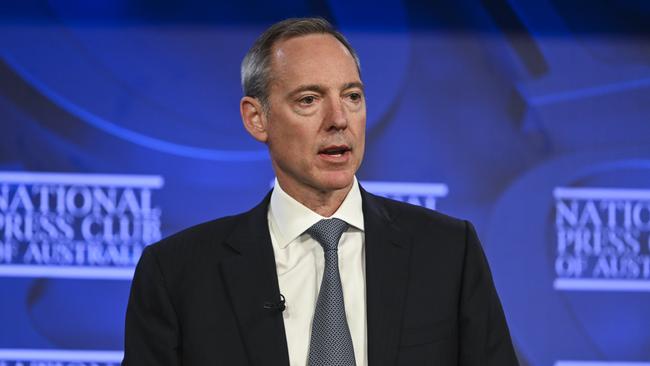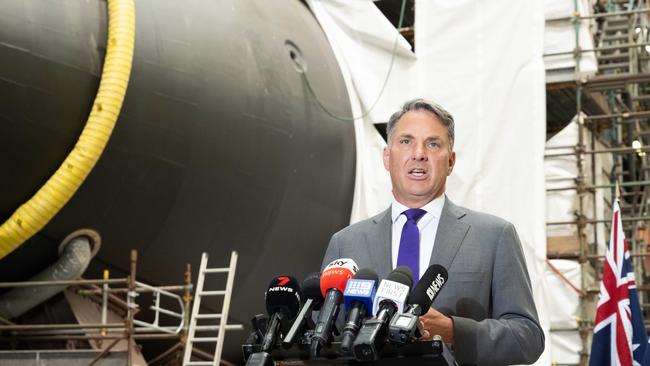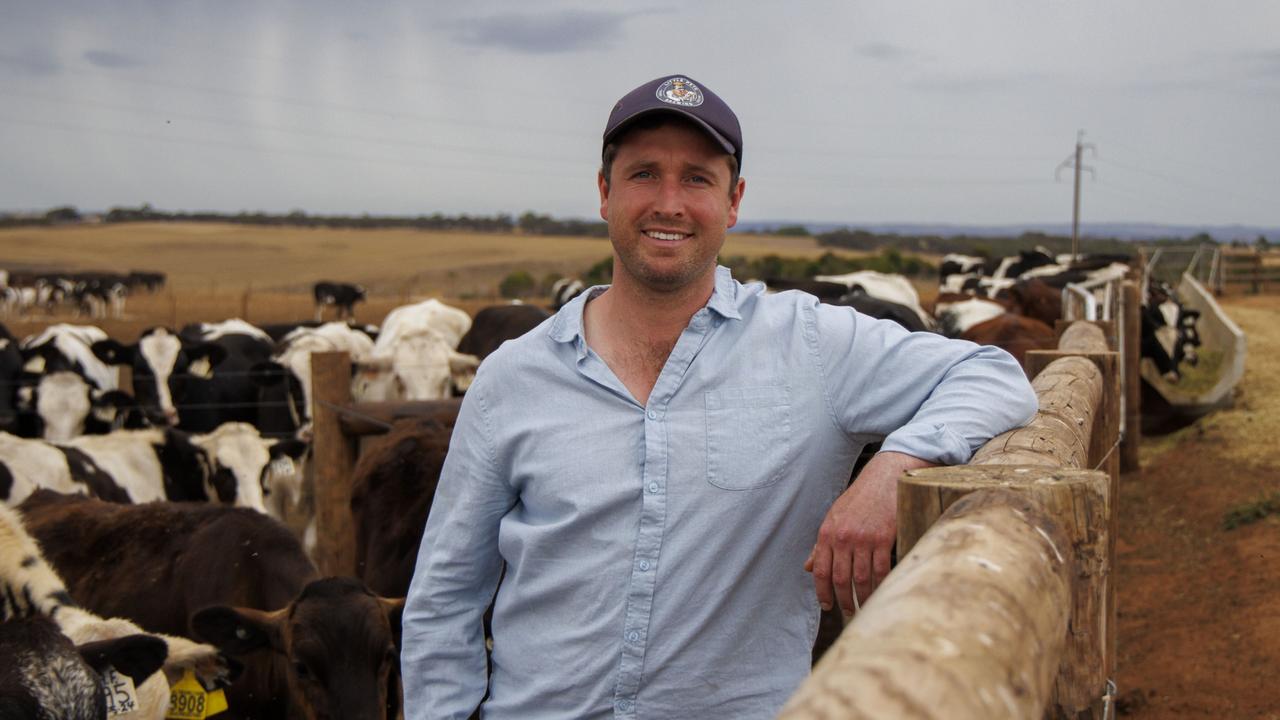Defence industry faces cashflow crisis amid delays, reviews
One of Australia’s leading munitions manufacturers has warned the government’s stalled defence agenda has left many of the industry’s firms on ‘life support’.

One of Australia’s leading munitions manufacturers has warned the government’s stalled defence agenda has left many of the industry’s firms on “life support”.
Nioa Group chief Robert Nioa told the National Press Club the industry was bleeding capital amid multiple defence reviews, and couldn’t wait for the government to come up with its “perfect list” of projects to take forward.
The frustration in the sector comes as Defence Minister Richard Marles warns his department there will be no new money for weapons and equipment programs in the upcoming mid-year budget update.
The minister has ordered his bureaucrats to continue their search for savings, as the department scrambles to review its decade-long investment program and finalise plans for the navy’s new surface fleet before next year’s budget.
Mr Nioa said the uncertainty was driving defence sector firms to the wall. “I look at many Australian defence companies and wonder if they will survive into 2024,” he said.
“We have job losses and businesses on life support. Plans for building factories and capabilities in Australia are on hold or have already shifted to other countries where they could.
“Why is this happening? Because so many reviews are stalling defence spending. Where is the sense of urgency, of responding to the strategic crisis? Where is the strategic vision to build Australian defence companies?”
Mr Nioa, whose Queensland-founded firearms and munitions company is a major supplier to the ADF, said Defence needed to speed up its decision-making to overcome four-year waiting times before contracts were even awarded.
Launching a new industry report urging “bold steps” to strengthen the nation’s security, he called for the government to deliberately prioritise Australian firms for defence contracts.
The report argues for an annual $500m budget line, growing to $1bn a year, that would be reserved for acquiring defence capabilities from small and medium-sized Australian companies. “The best defence industry policy will fail without funding. Cashflow and reasonable profit are enablers of successful product development and capability and service delivery,” Mr Nioa said.
His comments followed evidence to Senate estimates in October that Defence was still looking for $1.8bn in savings as it reprioritises its capability plans.
The new report, Developing Australia’s Industrial Base, calls for the government to foster the development of Defence industry “primes” – companies big enough to manage large and complex projects – to ensure Australia can produce sufficient war stocks for times of need.

Mr Nioa said these “consumables” included armed and unarmed drones, guided missiles and munitions and supplies of fuel, food, medical materials.
He pointed to estimates that Australia had only enough of these supplies to last a week in a high-end conflict, noting Ukraine was losing 10,000 drones a month.
“If we are involved in a conflict, are we going to get deliveries of 10,000 drones a month at a time where there’s global conflicts?” he asked rhetorically.
“We know what the consumables of conflict look like. But they are well within the capabilities of Australian companies to develop now.”
His speech followed came after Defence Industry Minister Pat Conroy revealed this week the government’s long-awaited defence industry strategy would be delayed until next year.



